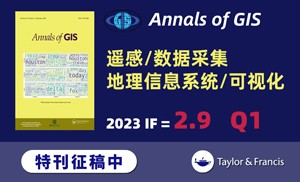当前位置:
X-MOL 学术
›
J. Am. Acad. Child Adolesc. Psychiatry
›
论文详情
Our official English website, www.x-mol.net, welcomes your
feedback! (Note: you will need to create a separate account there.)
Shortened Sleep Duration Causes Sleepiness, Inattention, and Oppositionality in Adolescents With Attention-Deficit/Hyperactivity Disorder: Findings From a Crossover Sleep Restriction/Extension Study.
Journal of the American Academy of Child and Adolescent Psychiatry ( IF 9.2 ) Pub Date : 2018-11-02 , DOI: 10.1016/j.jaac.2018.09.439 Stephen P Becker 1 , Jeffery N Epstein 1 , Leanne Tamm 1 , Alina A Tilford 2 , Clair M Tischner 2 , Paul A Isaacson 2 , John O Simon 2 , Dean W Beebe 1
Journal of the American Academy of Child and Adolescent Psychiatry ( IF 9.2 ) Pub Date : 2018-11-02 , DOI: 10.1016/j.jaac.2018.09.439 Stephen P Becker 1 , Jeffery N Epstein 1 , Leanne Tamm 1 , Alina A Tilford 2 , Clair M Tischner 2 , Paul A Isaacson 2 , John O Simon 2 , Dean W Beebe 1
Affiliation
OBJECTIVE
Although poor sleep is often reported in adolescents with attention-deficit/hyperactivity disorder (ADHD), prior studies have been correlational. This study investigated whether sleep duration is causally linked to sleepiness, inattention, and behavioral functioning in adolescents with ADHD.
METHOD
A total of 72 adolescents (aged 14-17 years) entered a 3-week sleep protocol using an experimental crossover design. The protocol included a phase stabilization week, followed in randomized counterbalanced order by 1 week of sleep restriction (6.5 hours) and 1 week of sleep extension (9.5 hours). Sleep was monitored with actigraphy and daily sleep diaries, with laboratory visits at the end of each week. Analyses included 48 adolescents who had complete actigraphy data and successfully completed the sleep protocol (defined a priori as obtaining ≥1 hour actigraphy-measured sleep duration during extension compared to restriction). Parent and adolescent ratings of daytime sleepiness, ADHD symptoms, sluggish cognitive tempo (SCT), and oppositional behaviors were the primary measures. The A-X Continuous Performance Test (CPT) was a secondary measure.
RESULTS
Compared to the extended sleep week, parents reported more inattentive and oppositional symptoms during the restricted sleep week. Both parents and adolescents reported more SCT symptoms and greater daytime sleepiness during restriction compared to extension. Adolescents reported less hyperactivity-impulsivity during sleep restriction than extension. No effects were found for parent-reported hyperactivity-impulsivity, adolescent-reported ADHD inattention, or CPT performance.
CONCLUSION
This study provides the first evidence that sleep duration is a causal contributor to daytime behaviors in adolescents with ADHD. Sleep may be an important target for intervention in adolescents with ADHD.
CLINICAL TRIAL REGISTRATION INFORMATION
Cognitive and Behavioral Effects of Sleep Restriction in Adolescents With ADHD; https://clinicaltrials.gov/; NCT02732756.
中文翻译:

睡眠时间缩短会导致患有注意力缺陷/多动症的青少年嗜睡、注意力不集中和对立:一项交叉睡眠限制/延长研究的结果。
目的 虽然患有注意力缺陷/多动障碍 (ADHD) 的青少年经常报告睡眠质量不佳,但之前的研究表明存在相关性。这项研究调查了睡眠时间是否与患有多动症的青少年的困倦、注意力不集中和行为功能存在因果关系。方法 共有 72 名青少年(14-17 岁)采用实验交叉设计进入了为期 3 周的睡眠方案。该方案包括阶段稳定周,然后按随机平衡顺序进行 1 周睡眠限制(6.5 小时)和 1 周睡眠延长(9.5 小时)。通过体动记录仪和每日睡眠日记来监测睡眠,并在每周结束时进行实验室访问。分析包括 48 名青少年,他们拥有完整的体动记录数据并成功完成睡眠方案(先验定义为与限制相比,在延长期间获得≥1小时的体动记录测量睡眠持续时间)。家长和青少年对白天嗜睡、多动症症状、认知节奏缓慢(SCT)和对抗行为的评分是主要衡量标准。 AX 连续性能测试 (CPT) 是次要措施。结果 与延长睡眠周相比,父母在限制睡眠周期间报告了更多的注意力不集中和对立症状。与延长限制期间相比,父母和青少年都报告了更多的 SCT 症状和更多的白天嗜睡。与延长睡眠时间相比,青少年报告睡眠限制期间的多动冲动较少。没有发现对父母报告的多动冲动、青少年报告的注意力缺陷多动症或 CPT 表现有影响。结论 这项研究提供了第一个证据,证明睡眠时间是 ADHD 青少年白天行为的一个因果因素。 睡眠可能是干预患有多动症的青少年的重要目标。临床试验注册信息 睡眠限制对多动症青少年认知和行为的影响; https://clinicaltrials.gov/; NCT02732756。
更新日期:2018-11-02
中文翻译:

睡眠时间缩短会导致患有注意力缺陷/多动症的青少年嗜睡、注意力不集中和对立:一项交叉睡眠限制/延长研究的结果。
目的 虽然患有注意力缺陷/多动障碍 (ADHD) 的青少年经常报告睡眠质量不佳,但之前的研究表明存在相关性。这项研究调查了睡眠时间是否与患有多动症的青少年的困倦、注意力不集中和行为功能存在因果关系。方法 共有 72 名青少年(14-17 岁)采用实验交叉设计进入了为期 3 周的睡眠方案。该方案包括阶段稳定周,然后按随机平衡顺序进行 1 周睡眠限制(6.5 小时)和 1 周睡眠延长(9.5 小时)。通过体动记录仪和每日睡眠日记来监测睡眠,并在每周结束时进行实验室访问。分析包括 48 名青少年,他们拥有完整的体动记录数据并成功完成睡眠方案(先验定义为与限制相比,在延长期间获得≥1小时的体动记录测量睡眠持续时间)。家长和青少年对白天嗜睡、多动症症状、认知节奏缓慢(SCT)和对抗行为的评分是主要衡量标准。 AX 连续性能测试 (CPT) 是次要措施。结果 与延长睡眠周相比,父母在限制睡眠周期间报告了更多的注意力不集中和对立症状。与延长限制期间相比,父母和青少年都报告了更多的 SCT 症状和更多的白天嗜睡。与延长睡眠时间相比,青少年报告睡眠限制期间的多动冲动较少。没有发现对父母报告的多动冲动、青少年报告的注意力缺陷多动症或 CPT 表现有影响。结论 这项研究提供了第一个证据,证明睡眠时间是 ADHD 青少年白天行为的一个因果因素。 睡眠可能是干预患有多动症的青少年的重要目标。临床试验注册信息 睡眠限制对多动症青少年认知和行为的影响; https://clinicaltrials.gov/; NCT02732756。









































 京公网安备 11010802027423号
京公网安备 11010802027423号